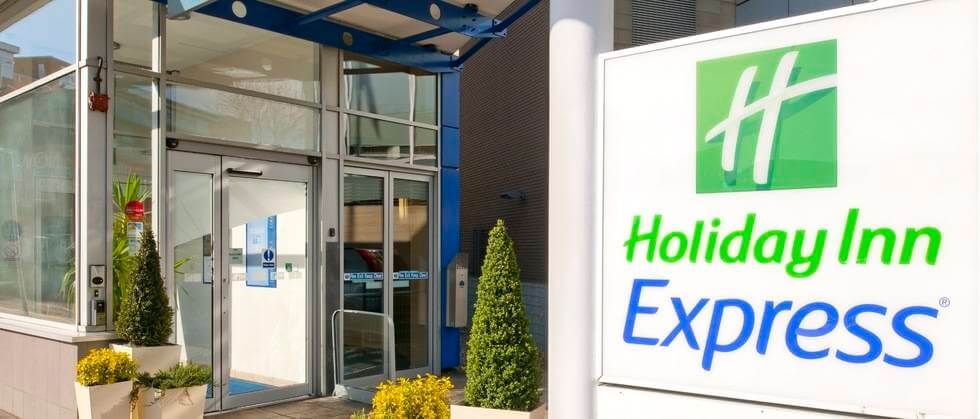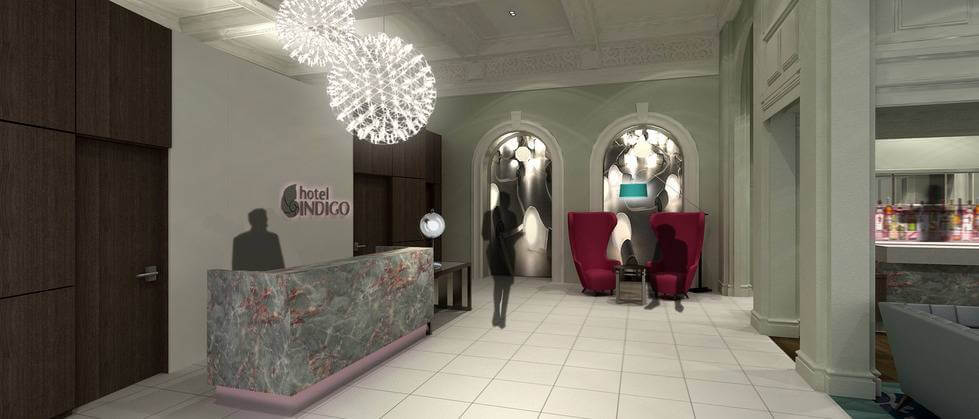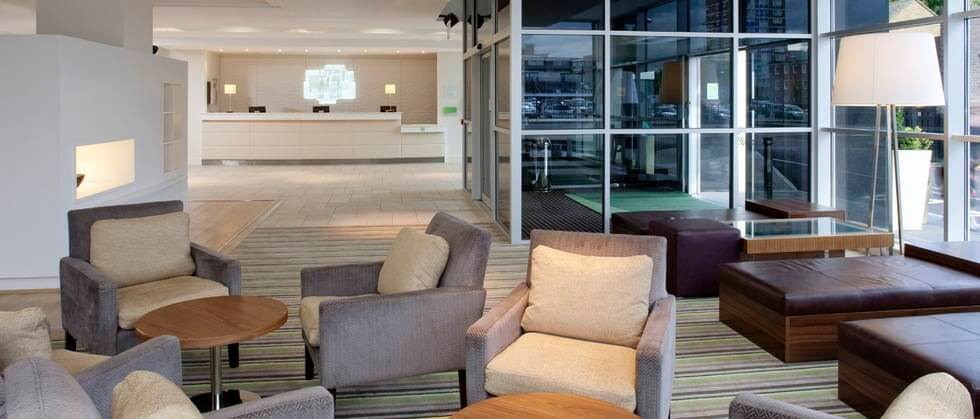E and M commerce issues and considerations for UK brand franchises and independent hotels
In this lengthy post, we’ll feature some key considerations to have in mind when making a decision brand v independent from an ecommerce point of view, and then going on to select your ecommerce partner assuming that you have a choice in that regard. Please note that ecommerce doesn’t just refer to the website booking engine, it covers the whole on line ‘central reservation system’ (CRS), importantly including IDs, GDS, and channel management and channel connect considerations. We will aim to be as brief as possible, flagging up all the key issues - this is a huge subject with many areas worthy of individual treatment, we may in fact do this in later posts.
At the outset, remember that your ecommerce system is at the very core of the successful business experience, the culmination of a successful travel shopper or buyer journey to a booking, a conversion. We will focus on ROOM bookings, specialist ecommerce systems now exist to sell meeting rooms, spa treatments, gift vouchers, activity programmes and even weddings on line. It is however often important to include some of these products in what we call dynamic packaging, where the travel shopper whilst in the room booking process is invited to add on extras to the room booking at the point of purchase – examples might be spa or beauty treatments, chocolates, wine/champagne and flowers – in the case of a bed and breakfast booking, dinner and/or lunch – and in the case of a room only booking – breakfast, lunch and dinner
Not all brands are created equal. This is particularly important when assessing your choice of brand, while you will be committed in whole or in part to the brand CRS, the extent to which this applies may well differ dependent on the brand. If you are e.g. IHG or Hilton branded, you and your whole CRS will be almost totally ruled by the brand system and its rules and standards(especially re e.g. best rate guarantee)- and its channel management rules procedures and opportunities – whilst with e.g. Best Western, you have more latitude and can usually choose your own ecommerce system although even they are striking direct agreements with on line travel companies and therefore bringing these within their rate and channel management guidelines. BW also expect you to comply with their rates strategy so that you are not underselling them. Whereas the likes of IHG, since they provide the CRS, know your rates strategy and can audit you to ensure that you are fully brand complaint with eg their rate strategy currently in force.
The two single most important things a brand can give you in the ecommerce arena is rooms business, and a loyalty scheme, which can normally be used at any brand property anywhere in the world. Almost every other element of brand compliance is a COST. It is very rare too for the brand cost of sale (commissions and booking fees) to be less than that of an independent CRS, and the brand CRS is said by many to be a very poor, clunky and clumsy customer booking experience(and may not allow dynamic packaging and flexibility of selling/upselling products to the extent that an independent CRS can).
Do your market ecommerce research very carefully for your particular destination and business This is important at the ecommerce /booking point – the point of sale. Ask yourselves how strong is the brand at your destination, what is the competitive position especially brand v independent, does the destination generate a lot of non-discretionary travel business giving you a good revenue base, have you excellent meeting/wedding/spa facilities which might make you better standalone, is GDS booking much business into your destination, and if so, are agents searching by brand or by location &c &c. All other things being equal, the more heavily you’re dependent on high end leisure business, the less attractive a brand proposition becomes although more recently the major brads e, Marriott and IHG (Indigo) are moving into the high end and boutique/luxury leisure space. Remember too that for the big boys,e.g. Marriott, Hilton, IHG, Accor &c, unless you are a minimum size say 100 rooms, they may n ot be interested anyway, Best Western are more likely to accept smaller, more character led properties.(say 30 bedrooms upwards)
Find out what locally and nationally negotiated room rate positions the brand has that would bring you unique business – brands usually have preferred rate agreements with the big national and international agencies like Carlson Wagonlit, Amex, First Option, JTB &c which are very expensive, almost prohibitive, for the smaller independent hotel to participate in. Furthermore brands will have direct agreements directly with the main corporate bookers in your area.
Independent has choice s - - notably the choice of ecommerce system provider (CRS). Be warned, this MUST have CRS/IDS/GDS, and ideally channel manager capability – what we would call a PMS vendor booking link is almost inevitably the WRONG CHOICE. PMS companies are exactly that, they’re not specialist ecommerce companies, but increasingly recently they are trying to steal into the ecommerce spaace, and selling strongly on the basis of the integration of your reservations system with your online booking system. This is the wrong way round. The ability of your chosen ecommerce supplier/partner to integrate with your chosen cms is an important feature, granted, especially foe as of reservation management and the important ability to sell down to the last room across your distribution landscape, but AS MOST OF THE LEADING ECOMMERCE COMPANIES CAN IMTEGRATE WITH A NUMBER OF PMS SYSTEMS, your ecommerce decision can, and must, be made independently of your PMS decision if you are going to maximise your position. And the CRS decision should never be c ompromised by the choice of PMS. This freedom of informed choice is a very important asset to the independent hotel as against the brand, and allows you to control and manage your own rate, inventory and cost of sale in a way not possible via a brand ecommerce system, and also get full analytics reports also not always available via a brand system. You see, a brand usually doesn’t really want you to have an independent website from brand.com, and therefore is likely to resist attempts to gain information about bookings which emanate from your web site and not from brand.com. This a ridiculous practice and should be strongly resisted.
The Right choice of booking engine, remembering mobile/tablet rendering too. It is said that we’re now a ‘3 screen society’. So at the outset, brand or independent, your booking interface must render perfectly on PC’s/laptops, tablets and mobile phones/smartphones. In our experience, some of the brand.com mobile booking engine solutions are a poor user experience. Whilst some independent ecommerce providers have very smart and nifty systems which integrate perfectly with hyour own website in a continuum,. Thereby not disrupting the process one bit. With brand.com, if you have your own mobile website, it will have to link to the brand.com booking engine and this will clearly show to the travel shopper that thyey have left one site and gone on to another. Also the big brand beasts are forever altering their integration codes so you need to be very mindful of this or you may find that suddenly your mobile booking engine link will stop working.
Leading ecommerce international specialists include Sabre, IHotelier (travelclick) and Fast Booking. These giants have a formidable array of technical and market intelligence and user experience k now how and their world class technologists are con tenuously upgrading and re-engineering their CRS’s to endeavour to be best in class. All of these solutions are surprisingly inexpensive to set up and very cheap to run, given the ,massive array of bells and whistles you can avail yourself of nowadays. We particularly like the new Guest Connect Flex by Sabre which we think iis the very best on the market currently and is scaleable and suits virtually any size of hotel. Most of the big providers are now offering free or very cheap channel management solutions built in. Furthermore the best providers will have a glittering array of corporate and leisure agency relationships, formidable GDS marketing skills, and a host of other benefits and statistics reports and analytics, allowing you not only to be in full control of your ecommerce, but to give a customer a booking experience at least comparable with, if not better than, the major OTA’s and merchants such as booking.com and hotels.com.
Cheap is most certainly ‘cheerful’ – there are a host of free ecommerce solutions out there, these are invariably provided by PMS vendors, any serious ecommerce partner just does not give free services, this is an area where the phrase pay peanuts and get monkeys, is invariably true. What you the hotelier is aiming for is ‘world class quality cheap’, not a ‘cheap system’
Remember too that if you are currently a branded franchisee, or an independent under the Best Western brand (which in effect means you are branded not independent!) you have the option to change brand, or debrand. It may interest you to know that we have had some amazing results and revenue growth from hotels which have DEBRANDED (especially from Best Western), and the ecommerce system partnership has created new opportunities and revenue growth areas hitherto not thought possible, thereby minimising the risks associated with the debrand.
Another big issue more recently affecting your choice of ecommerce partner are the real time rate display opportunities on Trip Advisor and Google Hotel Finder. It is already essential that your partner/supplier can feed your rates into these systems.
Never let the commission cost dictate the choice of ecommerce provider/partner – this means you don’t understand the CRS/ecommerce concept properly. You must assess the value added opportunities available only from the very best providers, and some of which can help you offset the marketing and channel management advantages a brand/affilliated hotel may be perceived to have. A world class ecommerce company such as Sabre can open many doors to new channels, new business, better yielding business – at direct costs of sale in the low single figure %’s, a very low composite marketing and cost of sale cost to get these new business and revenue opportunities. And gets you at very low cost into areas and channels where you can really give the brands a run for their money.
Right choice of ecom support – with a branded solution it is a WYSIWYG solution, theses mega systems are pretty robust, and you have to trust the brand technical team at all times. Anyway you’ll be bapying for it thro’ the franchise fees &c, nothing comes free with a brand. With independent hotels, and BW properties (they don’t have their own proprietary booking system), the quality of ongoing support from your ecommerce partner is ABSOLUTELY CRUCIAL.. because an outage or worse still a major downtime or corruption (heaven florbid) impacts immediately and directly on your revenue. Most of the major ecommerce companies do not charge independently for monthly support, the booking fess/commissions fund that, giving the impression that monthly support is in fat ‘free’. Our advice is to choose an ecommerce provider where the support is in your country, and is support by voice, by online ticket, by email i.e. a number of different options and choices. Speak to other hoteliers and get their testimonials of the great support they’ve achieved. For UK hoteliers, the Sabre solution is our preferred choice because the Sabre solution is superbly supported by the friendly English speaking team at Navarino Services in Oxford UK (details of their services and service levels are at www.navarinoservices.com ). A drawback of IHoteier in particular is that the support function is overseas and often very hard to access and understand!
Brands offer support resources in a whole number of different ways, including services on demand such as revenue management . See http://www.owners.org/Portals/1/Documents/Top%20Tips%202012%20Updated%20Jul%202012.pdf
Again be a little wary of these promises/service offerings, and ask other franchisees aout their experience with the brand, many brands offer with one hand, and restrict or take away on the other. Remember they’re CONTRIOL FREAKS.
Right choice of GDS service provider - if you are an independent, you can in fact really score on GDS business, if yours is a destination which attracts a lot of inbound GDS derived revenue. So your ecommerce partner, dependent on your destination gto a degree, needs to be chosen with proven GDS marketing expertise and experience in mind, as they will market and sell you property by giving you their brand of GDS representation. We believe that this can tip te balance in favour of independents over brands, as often travel agents using the GDS search by location &c rather than brand. This channel needs to be carefully managed as it is high cost but the yield is usually very good. Sabre, once a GDS company, is supported in the UK by Navarino Services, giving an excellent quality of GDS representation and marketing.
Right channel management solution - this will also depend on the size of your hotel. If you are a brand, your choice of channel management system will probably be dictated by the bran d (e.g. IHG use Merlin). In the case of independents, most ecommerce partners are now in-housing channel management and integrating CM successfully within their CRS’s and other systems, for little, and in some cases very low cost. We would recommend independents use the system recommended by their ecommerce partner, with the proviso that if you want/have to bolt a channel manager onto an independent system, be prepared for extra costs and technical complexities, and in our opinion, performance is compromised when compared with a perfectly integrated system.
Small independent hotels with few distribution channels may not need a channel management solution, but can manage their key channels manually thro’ supplier extranets. This has to be done very carefully so as not to risk overbookings. It’s cumbersome, but often all the business can afford the cost and time for. However always check this issue out with your ecom provider, because for very little cost the service can be introduced, and your ecom system integrated with your pms so tha you can sell down to the last room, and meaning that you only need to input business generated from outwith that environment eg a walk in or phone booking. The two way integration will then ensure that the wider distribution landscape always knows the current availability position. Remember too that even within the channel management system, you can individually channel manage so that you may e.g. only want your most expensive channel and cheaper rate lines open at key specified times &c and manage your cost of sale.
Right distribution landscape – OK, very dependent on the size of your hotel. If you are a branded property, then you’ll be able to avail yourself of the more advantageous commission rate agreements between the brands and the OTA’s. Some years ago now, IHG fell out with Expedia and oels.com and pulled their inventory from these suppliers. The OTA and merchants cam crawling back because of the huge volumes lost by this action. Subsequently there was a softening of the relationship brand.com and OTAS.com, and this in exchange for the major brands usually having fixed rate agreements with the OTA’s for guaranteed levels of exposure on TA.com sites – for example IHG currently pay booking.com 15%.
Independents on the other hand, have no such guarantees, and in fact have to ‘pay for position’ on OTA.com. This can mean parting with higher levels of commissions than brands, sometimes as high as 25-30%. Furthermore on line travel companies now have a reputation for bullying and threatening independent hotels in particular into maintaining rate parity with hoteliers’ own websites (not legal), and demanding certain allocations, inventory and rate levels and unreasonable similar guarantees (eg they used to want the last room &c &c.)
Independent hoteliers need to treat OTA’s with caution. Three things firstly, don’t give yourself unnecessary fruitless work by signing up with every on line travel company on the planet. The paltry amounts of business you’ll get from most of them don’t merit the massive management time to manage these interdependently, especially if you’ve no technology to support this – the Pareto principle applies – 90% of your OTA business will probably come from 3 or 4 suppliers so focus on managing them effectively. Secondly, if you screw up, you’re on your own to resolve it, YOU’LL GET NO HELP OR SYMPATY FROM THESE ON LINE GIANTS. Thirdly, a room sold to an on line travel company is one room less to sell direct from your website/over the phone, so you must manage your rates/inventory smartly to maximise your yield/reduce cost of sale.
A word of warning at this point –NEVER DEAL WITH A FLASH SALES COMAPNY UNDER ANY CIRCUMSTANCE. This is the quickest route to financial disaster and customer dissatisfaction in today’s marketplace. Especially if they go mainstream with you, which happens in many cases, they’ll destroy you, and send a demographic mix thro’ your door that will alienate your good clientele.
Brand booking engines/ecom systems and their drawbacks – we’ve alluded to these throughout this paper, lets re-emphasise the major ones again here
· Poor user experience
· Inflexible, clumsy, absence of, or little opportunity for dynamic packaging and upsell
· Tend to show screeds of available rates, rather than being able to drill down to the customer’s exact needs quickly
· Clunky and information/action heavy – many bookings are made on impulse, or where the booker wants the simplest experience possible and wants to provide the minimum info necessary, especially tru of mobile bookings
· Aesthetically very un appealing – a great booking system that is image and content rich is an incentive to complete, rather than abandon
· The branded hotelier gets little or no data about the booking performance e.g. how many from own website, how many from brand.com, when/where they abandoned the process, reasons for abandonment/failed availability reports, and general rate and agent/GDS production reports
· Difficult to integrate with e-CRM’s such as Guestfolio, becoming increasingly important in guest satisfaction/customer retention
Remembering always that one of the most important single attributes of a hotel booking engine is that it must provide an equal or better user experience than that of an OTA or merchant, to create the maximum incentive for travel shoppers to book direct. Have a look at the booking.com system and you’ll see how persuasive the whole booking process is and how it ‘hook’s customers’
The role of revenue management (rates, inventory, distressed, &c)
In a nutshell, you have more autonomy if you are independent, than if you are a brand. Brands are sticklers for due diligence and compliance, often perceived rather than real. One such are is the old chestnut of rate parity. Hotels large and small, independent or brand are still walking blindfold into this concept with OTA’s despite them being firmly against it. Branded hotels are so complaint about rate parity that you’d probably get tossed out if you were to undercut e.g. booking.com within the Holidex (being replaced soon) system. This is largely because the brands traded local website/brand.com rate autonomy away in exchange for fixed rates of commission &c and some guaranteed placements
Even if you are a branded hotel or franchisee, you may choose to have your own on site revenue management but you must obey rate parity at all times, it s god between brands and OTA’s
For the independent, there is no similar dictats re rate parity, and remember rat parity is not legally binding, and in fact tends towards the opposite as many consider it akin to price fixing and there are a number of large lawsuits pending as the independent hotel industry in particular fights the power of the OTA’sin their own backyard. Because there’s one little problem here, which is blatant price fixing, its called rate shopping. OTA’s will rate shop your hogtel on line and if they find a rate less than their rate for the same room for the same night, same conditions, they will demand that rate, or threaten you with all sorts of nasty things. This is causing massive dislike of OTA’s within the independent hotel sector. Not to mention the huge commissions they derive from the independents because of the pay for position practice. This is a highly imperfect and unsatisfactory market
Make sure that you are always able to sell your full product range on line. Independents should try to minimise the number of rate lines they offer, and use flexing to keep these in proportion, making foe ease of everyday management. Better to have more products and upselling opportunities, than a heap of rate lines for what is fundamentally the same product. Use your historical experience, analytics, and booking engine stats to learn how to fine tune your products and rate lines going forward. Independents are in a unique position to do this, branded hotels/franchisees are deprived of that level of analytic from their brand superiors.
Upselling and incentivising on line can be more actively and effectively managed by an independent hotelier. As well as offering complimentary upgrades for guests who book direct, you should also be offering incentives to direct bookers. Some properties choose to create a ‘club’ or a direct deals structure/service for direct and regular bookers. By booking directly, guests are able to get free services like airport transportation, free breakfast, or discounted on-site services spa, fitness centre, etc.). These incentive programs should be displayed prominently on every page of your website because you want potential guests to remember to book direct when they are ready to book.
Two other factors worth mentioning
· The independent hotel is more likely to be a niche operator, to that extent it should remember that in its product and rate strategy, no point in just trying to mimic an 9usally larger) branded hotel – or to try to compete with local brands on rate alone
· Rates and channel management – get the best mix of technology and hands on operational /revenue management which suits your property, expertly managing a few good prod cuing channels is far smarter, don’t do everything, do the things that matter, remember you don’t have access to the resources a brand/affiliation can bring.
Brand websites and marketing efforts are not created equal. With an independent hotel, the sky’s the limit to what you can do with on line marketing, local, regional and national - but you don’t have the support of brand.com – and that’s where the catch is re choice of brand, different brands market better/worse than others online, and hence drive more/less bookings and revenue dependent partially on that performance. You pay a princely sum to a brand for marketing, and therefore you expect nothing but the best. Take a large destination like e.g. Glasgow or Mancherster, and use th Google keyword tool to find out just how much traffic each brand is generating to brand.com, you’ll see big fluctuations, with Premier Inn/Hilton coming out consistently on top, Holiday Inn Express among the worst.
The local rates and destination landscape and the need for local management – everything is going ‘local’ these days, especially with the advent and manic growth of mobile. All other things being equal, a well managed independent hotel can be a much more potent local resource, guest satisfaction and revenue machine than a brand. And the good news for independent hoteliers is that some of the big brands are set to dispose of the ‘local’ website, whilst even now they are not properly supporting the success of the property locally if at all, preferring to do everything thro’ centralised channels, so that the branded hotel risks being poorly promoted at local level, and often is. Brand.com doesn’t know what’s going on in the area you’re in, so they’ll never be able to suggest how you can team up with local events &c to produce good quality packages for sale throughout the year.
The integration with the PMS – this topic is pretty brand/independent agnostic, but the brand/affiliated properties are usually better placed to invest in, or get supported by, two way CRS integration with PMS systems so that real time rate, inventory and revenue management can happen seamlessly
The integration with the e-CRM – the whole topic of e-and m- concierge and customer relationship management is becoming huge. This is now a critical channel shift tool as well as demonstrating that your hotel puts customer service and support high on the strategic agenda. Soon (and as/if the economic climate improves), investment in this area will soar, and will be the second most important impact tool on repeat and regular commerce and revenue after excellence in gust service. No brand booking engine/CRS currently integrates with any leading edge e-CRM system. But what we do know is that the leading independent hotel CRS and commerce companies are taking steps to have e-CRM and concierge integrated with their solutions, which means that, since most leading e-CRM solutions can integrate with most top level PMS’s, gives the independents an affordable, integrated guest commerce and management system
Mcommerce - much is being speculated in this area. Brands are pressing on with mega investment in this area, on brand mobile websites and booking systems. Tablet commerce is currently growing faster than mobile phone/smartphone commerce, the latter being used largely for impulse/last minute bookings whilst on the go, and on booking/buying other local services. The brand v independent comparison issues here are similar to the brand.com v local unit hotel website. The big brands want to centralise the mobile commerce infrastructure, whereas the hotels would prefer more local control which can also embrace local m-concierge and the showcasing and selling of local area attractions &c. The independent doesn’t have such constraints and it is already imperative that independent hotels, no matter their size, consider an urgent investment in a mobile optimised website. The level of on-device commerce is not yet that substantial, but the click to call button use is, and usually means the customer at that point is a hot prospect so the telephone reservations desk at then hotel must be prepare and honed up for this opportunity. Please also ote that on tablet devices, whilst the ideal is a very image rich visually optimised experience, your PC website may well render more effectively on a tablet than a mobile website – do check.
Social media and f- commerce – more has been written about social media and its role in travel commerce than on just about any other subject and even more so since the Facebook IPO. For non travel specific social media, read Facebook, and for f (facebook) –commerce, read virtually zero commerce. Ll the hotel data/survesy in this are suggest that less than 1 in 100 hotel bookings has been influenced at any stage by social media. Here is a ton of hype in this area which is making hotels of all shapes and sizes over-react to erroneous signals. If you are a small to medium sized independent hotel in particular, you just can’t afford the time and effort on this. For branded and affiliated properties, the brands are developing a social media presence of sorts, there is no immediate advantage in revenue terms to be gained by duplicating any of this effort right now.
What is important to ecommerce however is what some call travel social media i.e. review sites, and way out ahead, Trip Advisor. There is currently an ecommerce opportunity on TA for both branded and independent hotels to display their own rates on the site alongside other main OTA rates for the same room for the same stay and conditions. The major brands have agreements with trip Advisor to pull rates form the individual hotels for this purpose, make sure if you are an independent, that your ecommerce e provider can do the same for you. Other than that, do the maths, there is a fairly expensive PC rate for clickthro’s to your rates, an there are varying Reports from 1 in 7 to 1 in 20 of these clicks that will actually convert. Clearly the lower down you property is in the Trip Advisor rankings, the less attractive the proposition becomes as it is heavily reliant on page impressions. THE GOOD NEWS FOR INDEPENDENDT SI THAT THEY PERFORM FAR BETTER ON A GENERAL ANALYSIS OF TRIP ADVISOR POSITIONING THAN THE BRANDS DO.
Roomkey – an advantage to the brands, created by the brands – well perhaps, but not guaranteed, and now the concept is being extended to include major CRS’s and the independent hotels they represent, so that this is no longer an exclusive to the brands ecommerce and distribution platform.
Google HotelFinder – the newest kid to then distribution/ecommerce landscape block. This could present a threat to the independent sector in that
· They may not have the budgets to bid for the highest sponsored listing positions above the page fold
· They may not be prepared to pay the inevitable click thro’ costs which representation entails
Failure to be represented with your own rates on this program is handing a channel shift free gift to the OTA’s, the very thing independents in particular need to fight all the way.
Analytics and reporting
No ecommerce solution is complete without comprehensive, reliable, real time performance analytics and reports. For most hotels Google Analytics has all the power and capability you need, coupled with your webmaster taking a keen interest in your site’s technical and operational performance on Google Webmaster Tools, perhaps supplemented by Woorank, SEOMoz, Webtrends and other tools should your budget permit.
One huge advantage the independent has over the brand is in the area of ecommerce stats in particular. Google Analytics can easily be applied by a consultant who has expertise in this area, to the whole booking process from source and entering your website, right thro’ to conversion and booking, and with the assistance of sale/purchase funnels and goals, can measure extremely accurately how much your website is producing in room revenue (nb not ancillary revenue from e.g. weddings, restaurant), from what room and package sales, and also tell you where the customer abandoned the process if that visit to the site didn’t ultimately result in a conversion/booking.
You will NEVER get that level of reporting and analytics if you are a branded/affiliated hotel, it’s not possible for the simple reason that you c n’t apply your Google Analytics codes through to an independent booking engine unless you have the right degree of control, which you most certainly don’t. Even getting information about the performance of the brand booking engine is virtually impossible, its like they are embarrassed or otherwise loath to give it out, especially given their competitive position vis a vis other brands. So effectively your analytics come to a dead end the minute a visitor/travel shopper enters the brand booking engine
Analytics are at the bedrock of ecommerce and the brands let themselves and their affiliates down massively in this area.
To close on analytics, more advanced tools – Omniture &c are usually way too expensive for the relatively inaccurate information they produce, and consultants and brands which use them are very reluctant to part with a lot of the information contained therein.
Join us on Innfinite´s Google+ page
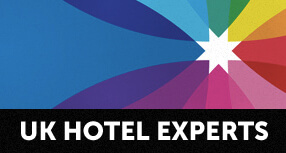
Hotel Deals
Great deals in just a click

Featured independent hotels of quality in Scotland
-
Balbirnie

Balbirnie House is a quite unique multi-award winning country house hotel which combines understated luxury with superb service and outstanding value.
-
Peat Inn
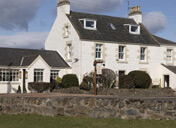
Winner of the AA Restaurant of the Year awards for 2010-11 at the recent AA Hospitality Awards, amongst the most prestigious national awards of their kind.
-
Knockinaam
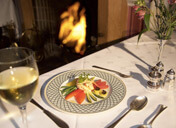
A small luxury country house hotel in Dumfries and Galloway with a glittering array of awards – 3 AA red stars, 3 AA food rosettes – and 1 Michelin star.
-
Maryculter

A classic 4 star country house hotel, 6 miles outside Aberdeen on the bank of the river Dee and a short drive from Aberdeen International Airport.
-
Piersland

A stunning, beautifully restored, W illiam Leiper inspired 4 star ‘country house hotel by the sea’, in glorious gardens, grounds and sun facing terrace, in Troon.
